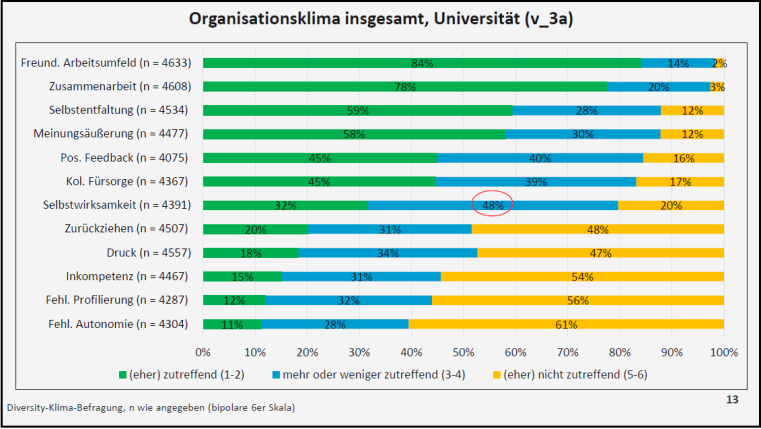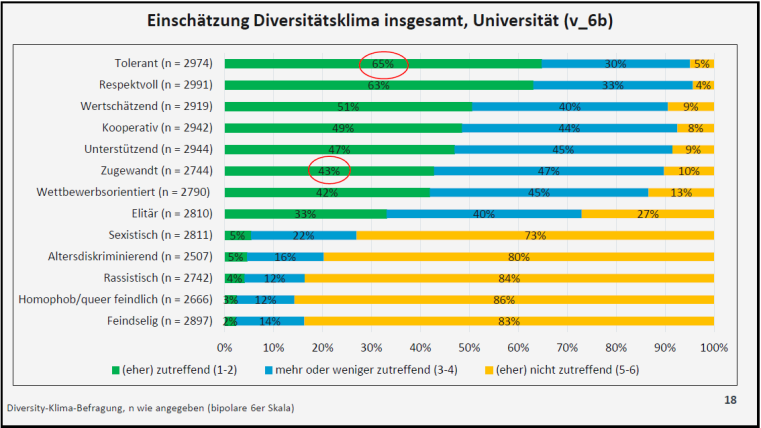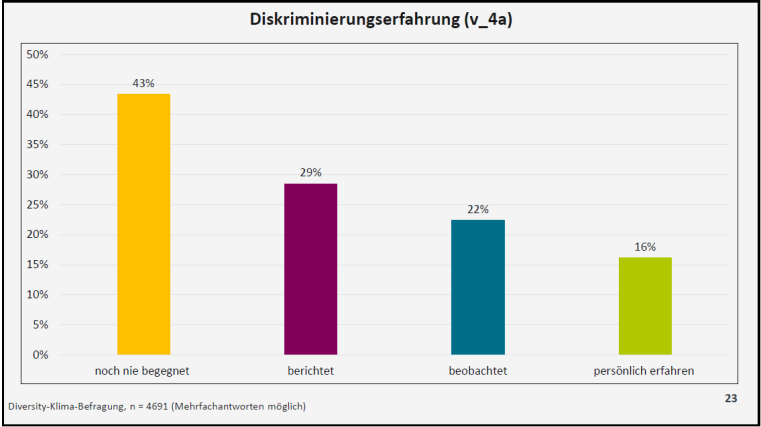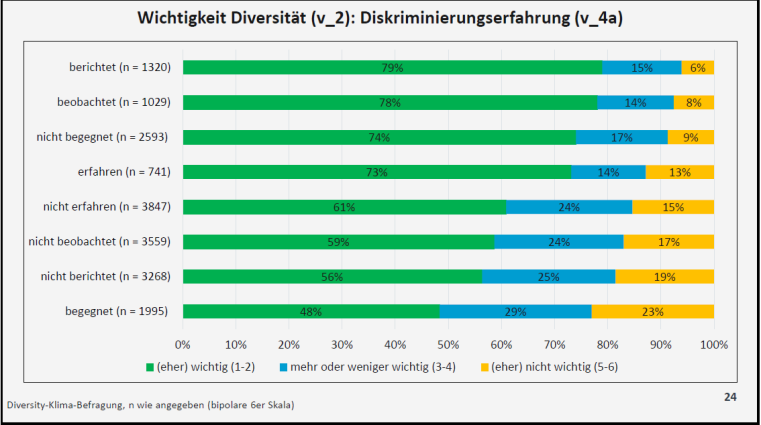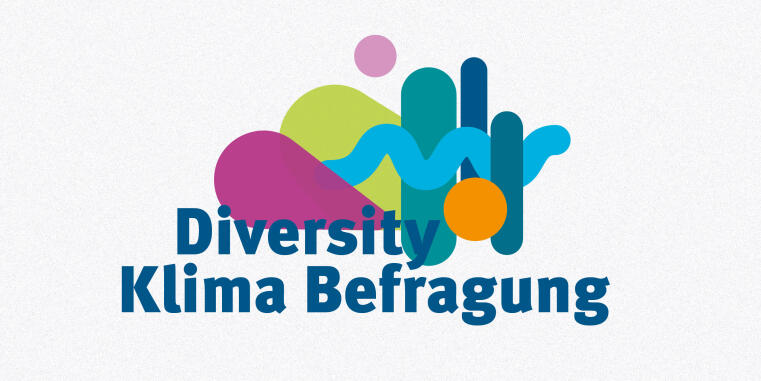
Diversity Climate survey
The University of Münster upholds equal opportunity, equitable participation and anti-discrimination as fundamental values. It strives to identify structural mechanisms of exclusion and dismantle institutional barriers. However, due to a lack of relevant studies, it is difficult to reliably determine the prevalence of discrimination at German universities. To better understand to what extent members of the University of Münster are affected by experiences of discrimination and to shed light on different perspectives on and perceptions of diversity and discriminatory treatment, the University of Münster invited all members to participate in an anonymous “Diversity Climate” survey. The long-term goal is to collect scientifically substantiated data on how employees and students at the University of Münster perceive experiences of discrimination and equal opportunity in order to prevent discrimination in a targeted and sustainable manner and to work towards achieving truly equitable participation in research, studies and teaching.
The data was collected through a collaborative process, supervised by Prof Stefanie Ernst and her team from the Institute of Sociology with the involvement of knowledgeable experts (e.g. the University representative and decision-making bodies such as AStA, the Representative for People with Disabilities and Chronic Illnesses, the Staff Councils, Steering Committee and Steering Group for the Diversity Audit, the Vice-Rectorate for Academic Career Development and Diversity, the Diversity Coordination Office, the Student Advice and Counselling Centre (ZSB) and the Future Lab)
Implementation and procedure:
- anonymised online survey in German and English (Unipark software program)
- all employees (incl. freelance lecturers, excluding emeriti) = 8,741
- all students = 44,432 recipients
- project endorsement by the Rectorate
- project start: February 2023, planning and design of the survey
- clarification from the Data Protection Officer on data protection compliance
- email invitation with survey link sent on 23 October 2023
- announcement of the survey via social media channels and the University of Münster website
- survey period: 23 October - 13 November 2023
- reminder email sent on 2 November 2023 and second announcement via social media and website
- participation after first week: n = 2000, with increase to n > 3000 after reminder email on 2 Nov., and a final total of n = 4691 respondents
- response rate just under 10%
The content of the Diversity Climate survey was developed in consultation with the “Diversity Audit Steering Committee” and was further modified with respect to the specific target group. The survey responses and their evaluation were anonymised to the extent that no conclusions could be drawn concerning the identities of the individual respondents. In accordance with recognised standards for diversity-sensitive research into organisational cultures, the Diversity Climate survey focused on the following topics:
A. Respondent’s demographic information:
- living situation
- education
- age
- gender
- health impairments
- origin
- religion/ideology
- sexual orientation
- socio-economic background
- parenthood or other caregiving responsibilities
B. Organisational climate:
- work, teaching and learning environment; recognition; appreciation
C. Diversity climate
D. Experiences of discrimination:
- experiences, perceptions and observations of discrimination
- experienced discrimination/observed discrimination: Places, subjective assessments, manifestations
- contexts of discrimination
E. Methods of handling discrimination
F. Future development potential
The key results of the Diversity Climate survey are listed below by topic area and can also be viewed in the summary report [de] of the results.

